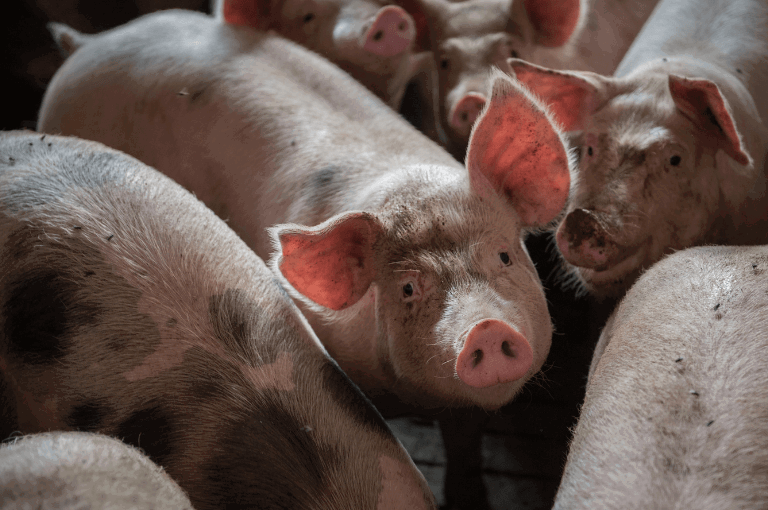Published 6/18/2020
DENVER – The chicken industry has long been plagued by problems related to animal welfare, consumer transparency, and worker safety—and the list keeps on growing. Last week, four high-level chicken industry executives—including the president and CEO of Pilgrim’s Pride—were indicted on price fixing charges as part of an ongoing investigation into an alleged scheme spanning multiple top chicken producers.
Among those indicted by a federal grand jury were current Pilgrim’s Pride’s president and CEO Jayson Penn, former Pilgrim’s Pride vice president Roger Austin, Claxton Poultry Farms president Mikell Fries, and Claxton vice president Scott Brady. All were accused by the Justice Department of sharing non-public information with each other to fix prices and rig bids from 2012 to 2017, each charge carrying a maximum penalty of 10 years in prison and a $1 million fine. That fine may still be raised if victims’ losses are found to be greater than $1 million.
The reach of these potential crimes is significant: Pilgrim’s Pride is the second-largest chicken producer in the nation, supplying big-name retailers and restaurants like Costco and KFC. Georgia-based Claxton Poultry Farms is the supplier to well-known chicken chain Chick-fil-A.
These indictments come after years of prominent lawsuits against major chicken companies, most notably a 2016 suit from food service company Maplevale Farms accusing producers—including the top four: Tyson, Pilgrim’s Pride, Sanderson Farms, and Perdue Farms—of colluding to fix the wholesale price of chickens in the marketplace. Between 2008 and 2016, that price increased by a whopping 50 percent.
Last year, the Justice Department asked the US District Court presiding over the Maplevale case to halt the discovery process so it could intervene and pursue a criminal investigation, leading to the indictment of the Pilgrim’s Pride and Claxton executives.
Tyson, Pilgrim’s Pride, Sanderson, and Perdue have all denied these allegations—though it was recently revealed that Tyson turned over information to federal investigators and is now cooperating with the Justice Department, and as a result will avoid prosecution. It has also been reported that the Justice Department is preparing to launch an additional antitrust probe of the beef industry.
These indictments come on the heels of several months of bad press about chicken companies’ failure to adequately address the rampant spread of COVID-19 in slaughterhouses. With procedures that force workers to stand in close proximity and slaughter line speeds that the USDA recently attempted to raise to an astounding 175 birds per minute, processing plants across the Midwest have rapidly become hazardous COVID hotspots, endangering workers’ safety and making local communities even sicker.
To make matters worse, the pandemic has thrown a wrench into chicken factory farms’ dangerously fast production rate, meaning that birds are now being slaughtered on farm by the millions in a wasteful attempt to cut costs—often in some of the most brutal ways imaginable.
“These recent price-fixing allegations follow a pattern of the chicken industry’s often unethical profiteering,” said Rachel Dreskin, Executive Director of Compassion USA. “When preserving and growing profits trumps all else, animals, consumers, and workers often pay the price. This industry is fragile, unfair, and unsustainable in its current state, and it’s high time a more honest and resilient way of doing business is ushered in.”
As Tyson Farms chairman John Tyson wrote in a recent full-page ad in The New York Times, “The food supply chain is breaking.” But as COVID-19 continues to ravage slaughterhouses and this latest industry scandal continues to unfold, it becomes clearer and clearer that the food supply chain isn’t breaking—it’s been broken for a long time.
If recent events have made anything apparent, it’s that factory farming is not the way forward—and from farm to slaughterhouse to plate, it also represents a massive pandemic risk. Take action and demand a future free from factory farming by signing our petition today.
